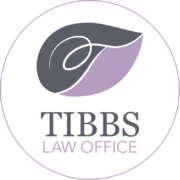Planning for long term care continued…
There are many tools that can be used to prepare for long term care: trusts, insurance, TODs, and gift transfers during a lifetime; however, you must choose the right tools for your specific situation and you must make sure those tools are prepared correctly or you may find yourself paying criminal consequences. Currently, the medicare lookback period is 5 years; however, it is likely the government will extend it to 7 or 8 years in the near future.
From my experience, financial planners tend to encourage clients to create trusts to avoid medicare rules. This can be great advice in certain situations; however, the client must keep in mind that if s/he would like to create a trust to avoid medicare, it must be an irrevocable trust and the trustee must be someone that is not a relative. Essentially, the government requires that the client give up all control over his/her assets. Many people, (especially those with significant assets) will not give up all control over the estate they spent their entire life building. In some cases, they can’t afford to give up all control because they need to have access to the assets in the event that something happens.
Insurance is a decent option. There does exist a particular type of insurance that will protect your assets in the event that you go into a nursing home. For instance, if you purchase the coverage for $200,000, the plan will allow you to keep $200,000 in assets (meaning that you have to spend down any assets above that) and then it will cover all other costs of long term care. This is a great option if you want to be able to maintain control over your assets. Obviously, the cost will be the monthly premium. If this is an option you are interested in exploring, please speak to your financial advisor. If you don’t have one, I would be happy to refer you to one.
Another great way to reduce assets for long term care planning is to give away assets. If you have family members that you trust, you can deed real estate to them, open bank accounts in their names, and make gifts of up to $13,000 per year (without tax conseqneces). I am always hesitant to recommend that my clients do this. If you give something away, you must realize that you are doing just that: giving it away. Once you give away an asset, you must expect that the person will treat it as their own. If they comply with your wishes then that is great but you should always expect that they won’t follow your wishes because legally, they don’t have to. People have a difficult time controlling themselves when money is involved.
No matter which tools you decide to use in order to adequately plan for long term care, you must make sure that your financial advisor and your attorney communicate and work well together. Neither will be able to adequately advise you if each is not aware of what the other is doing.






